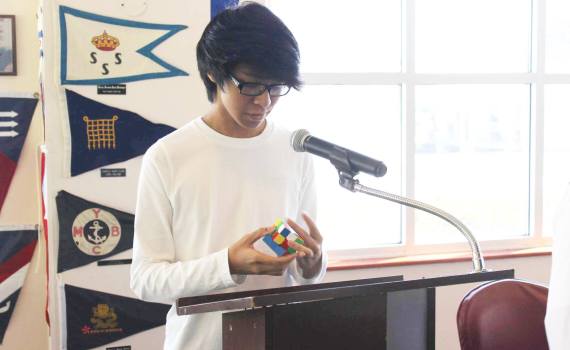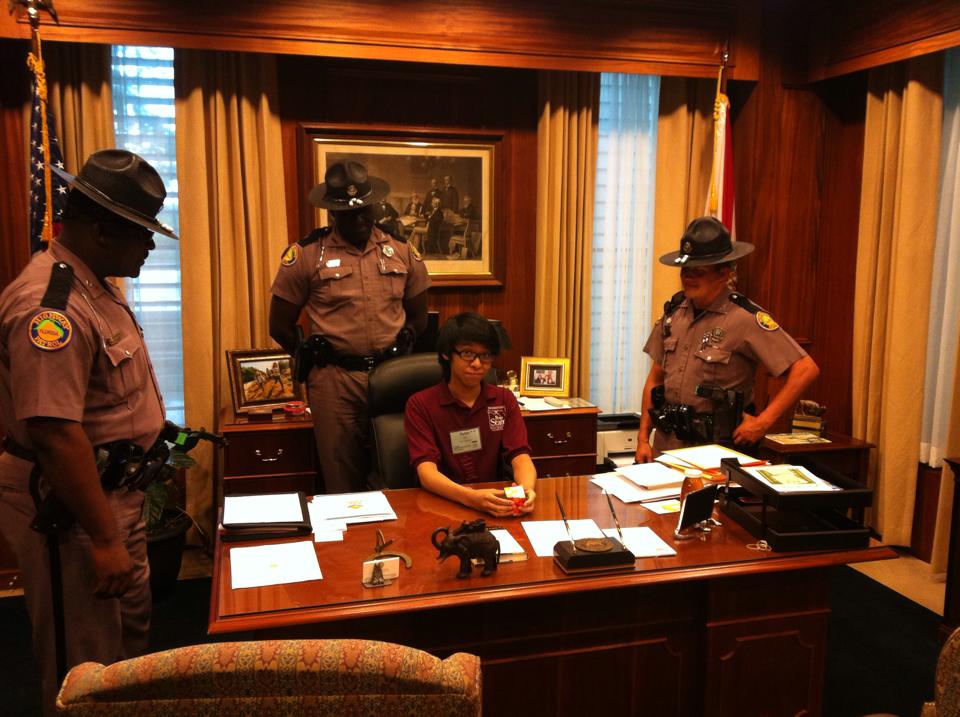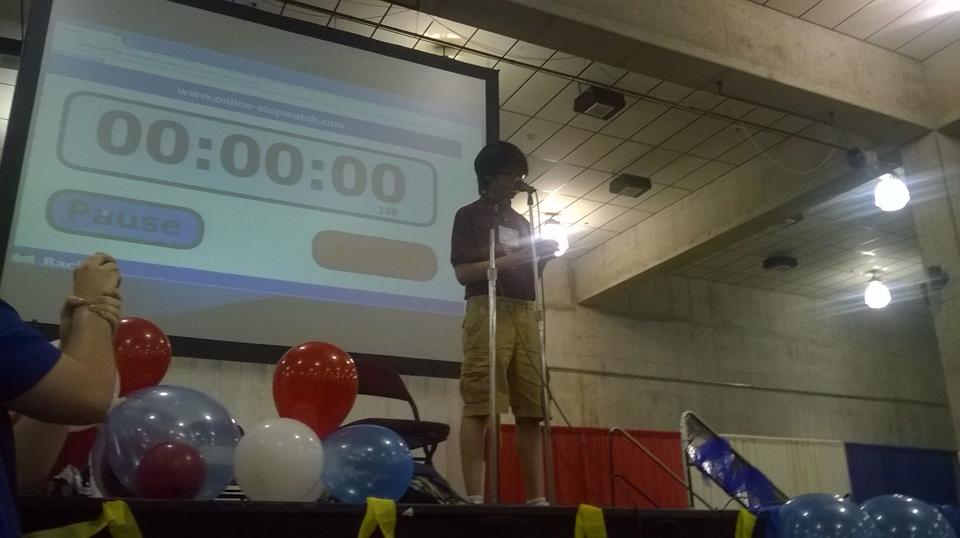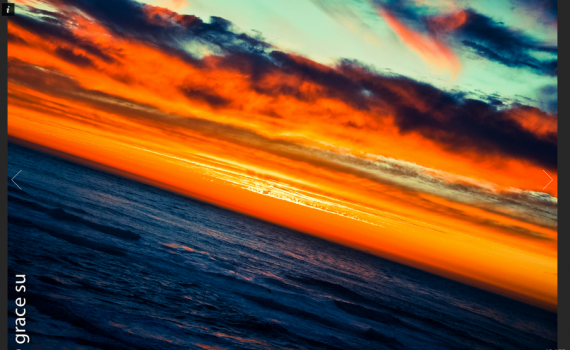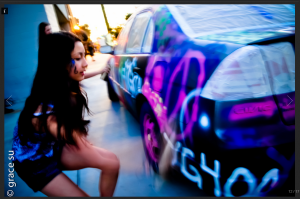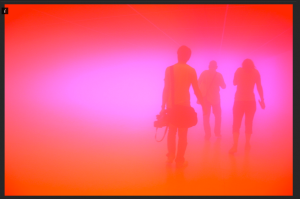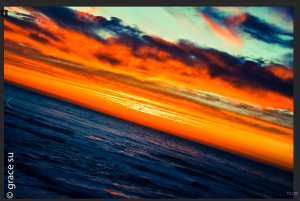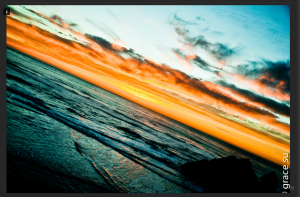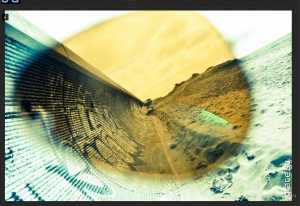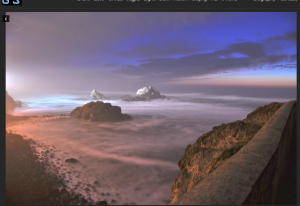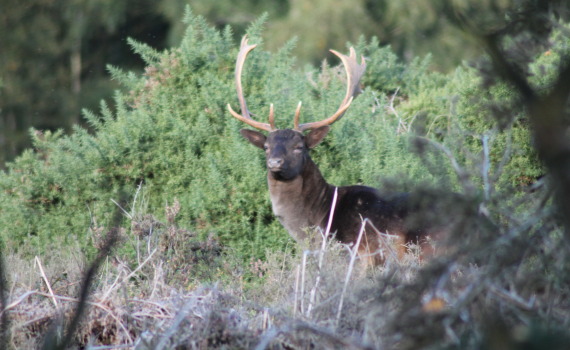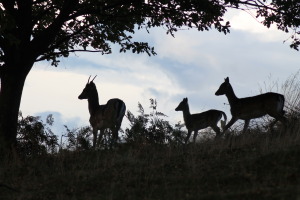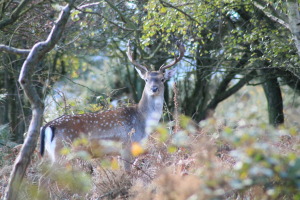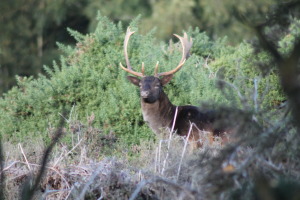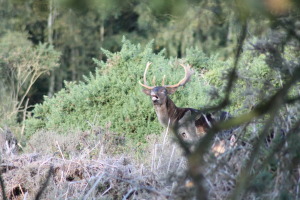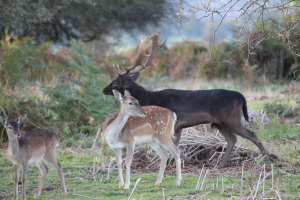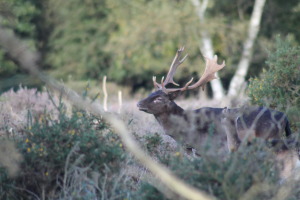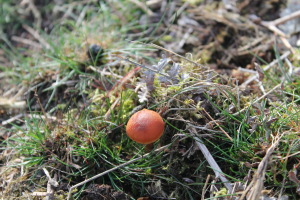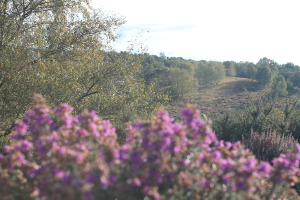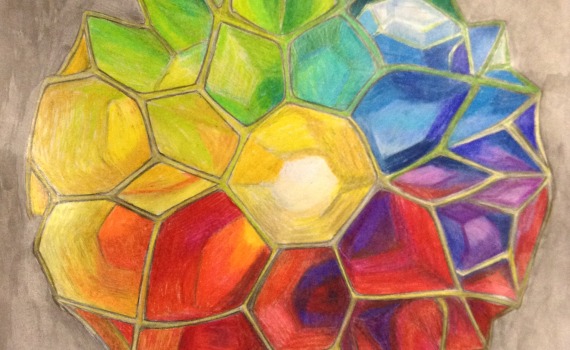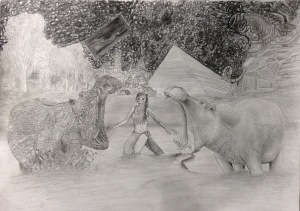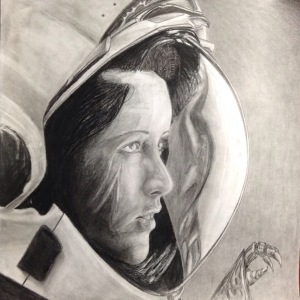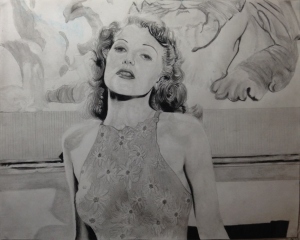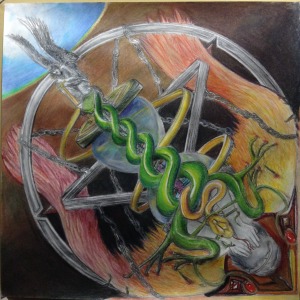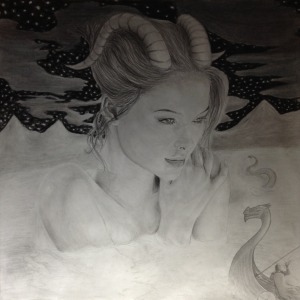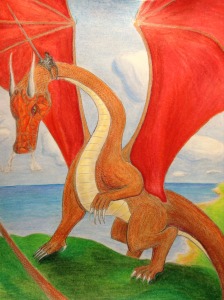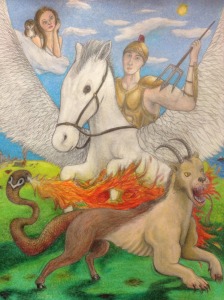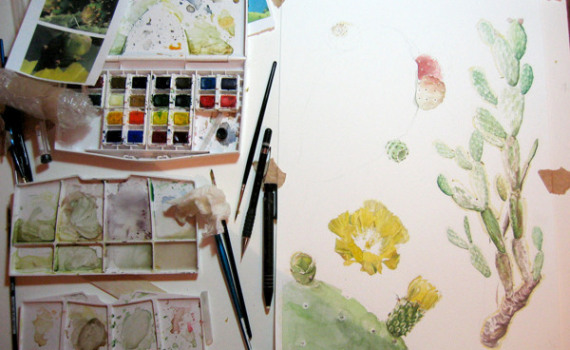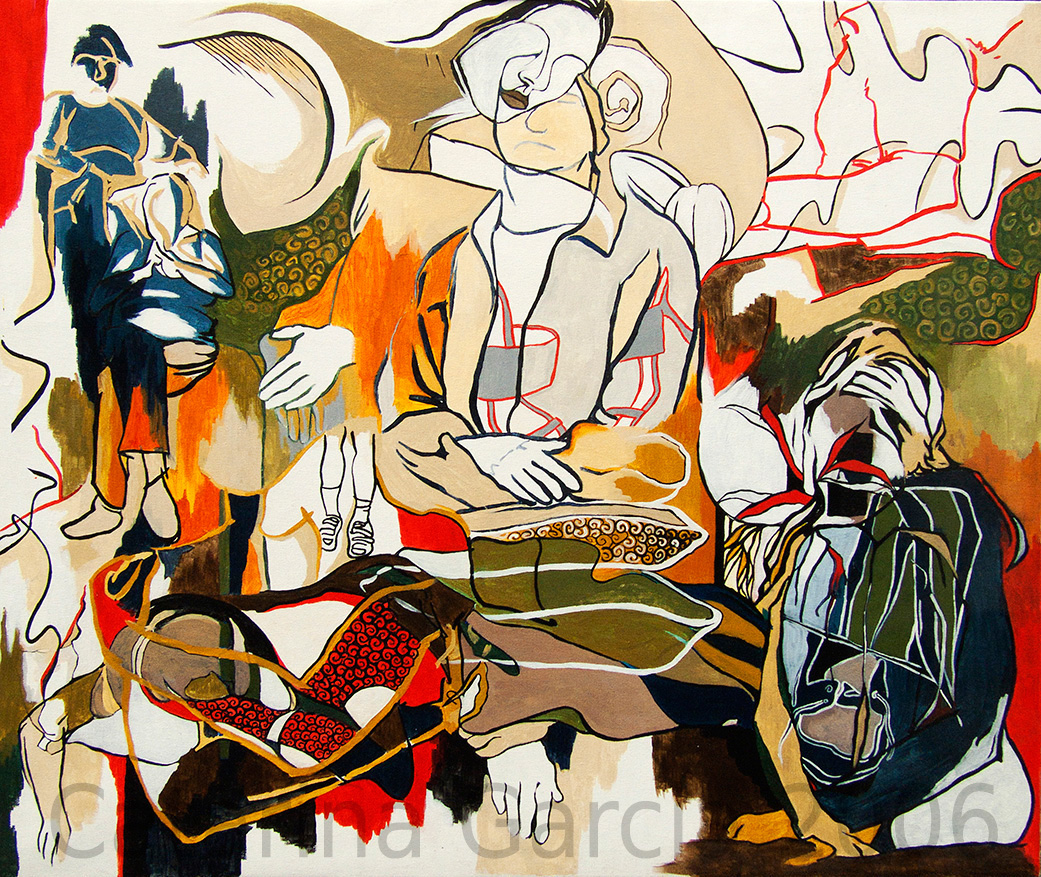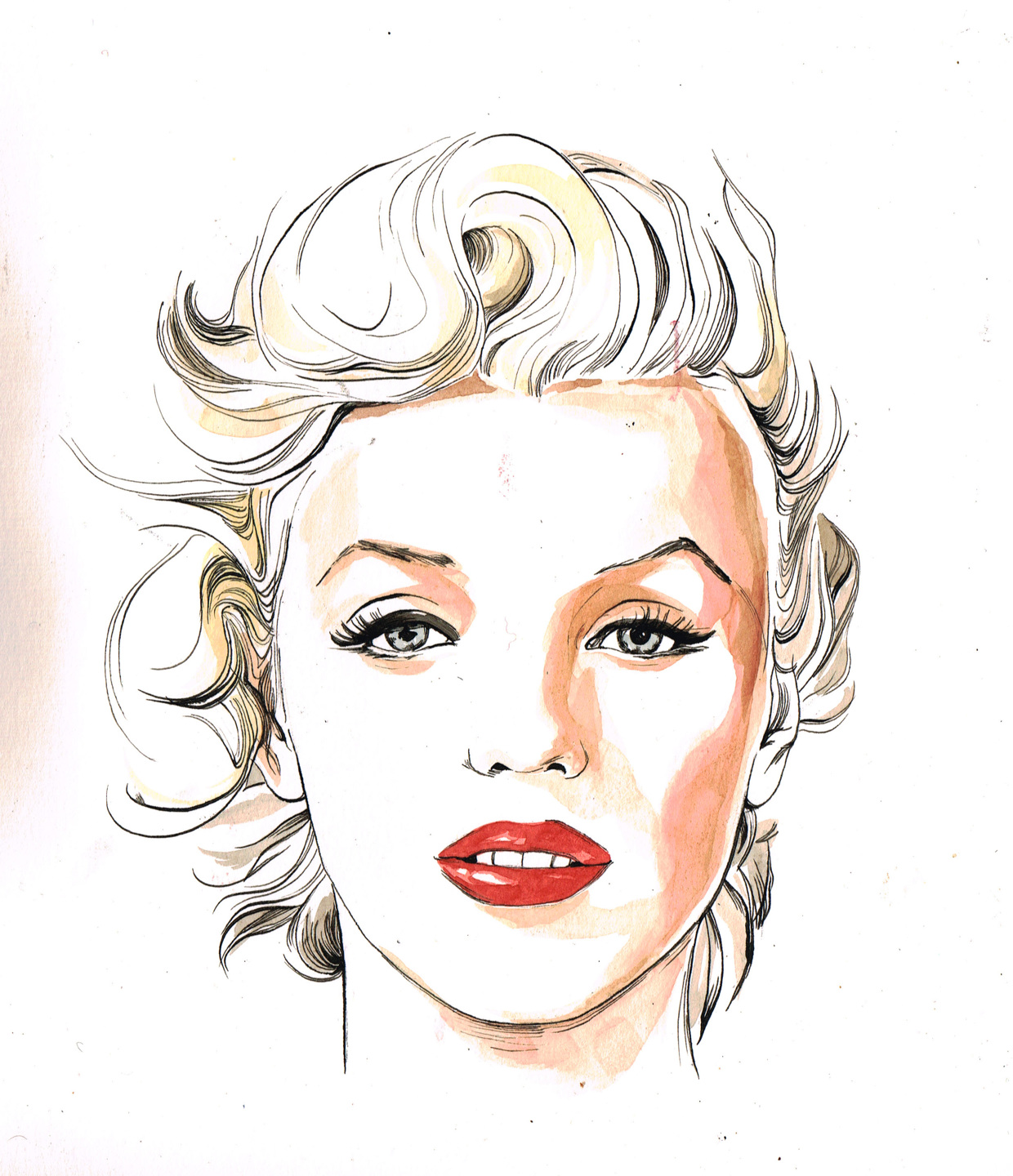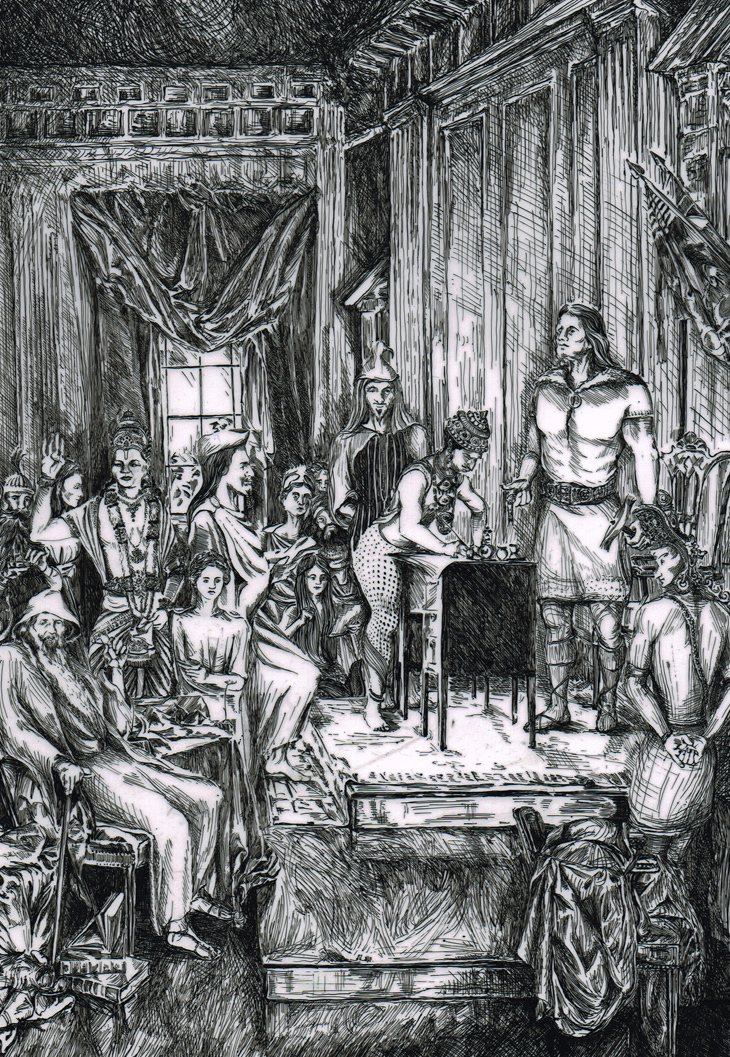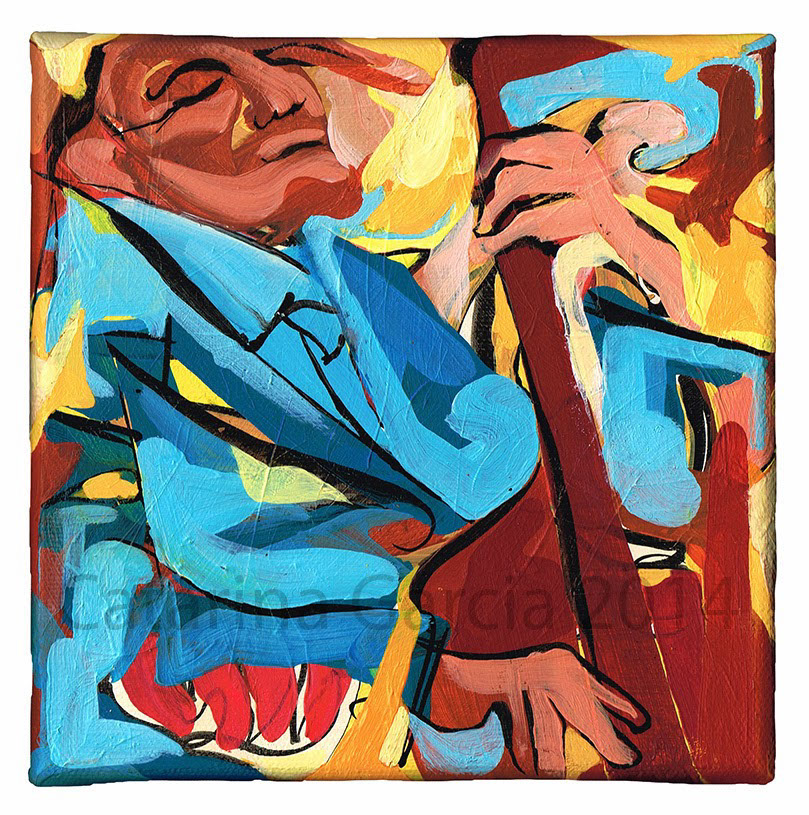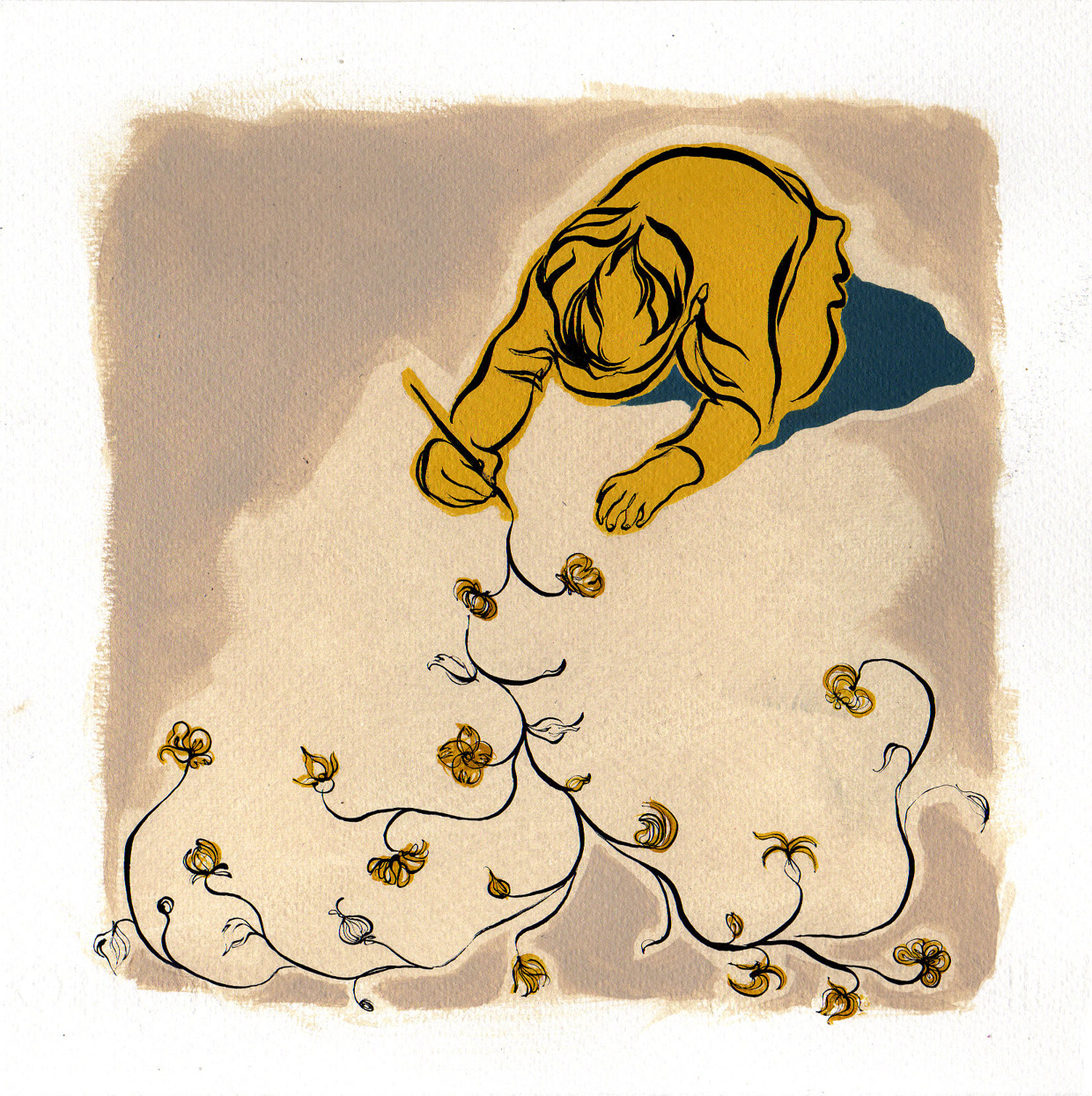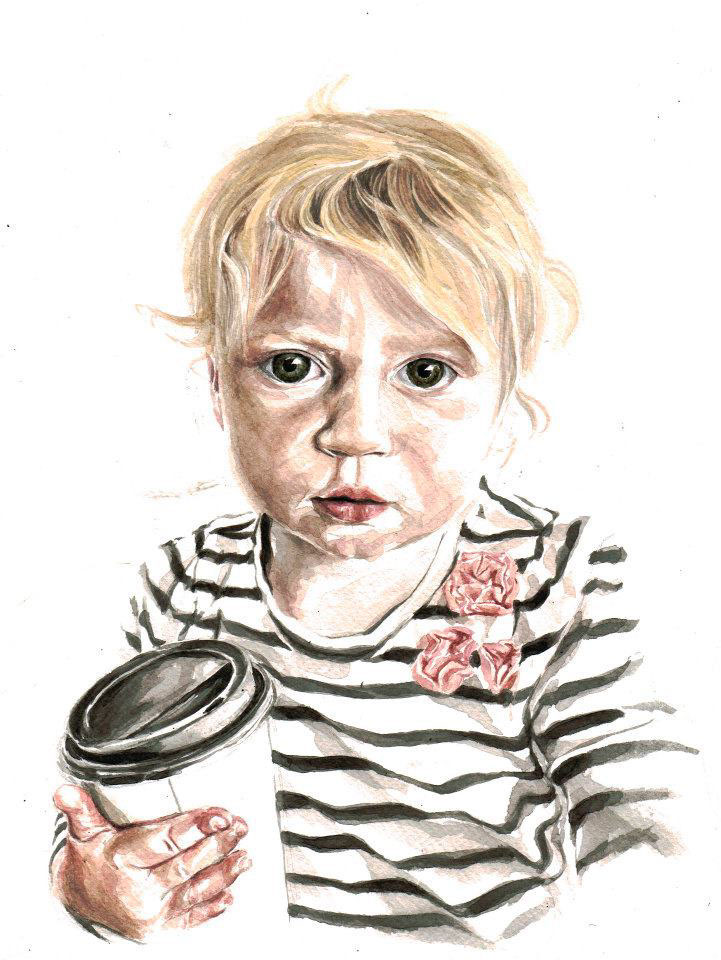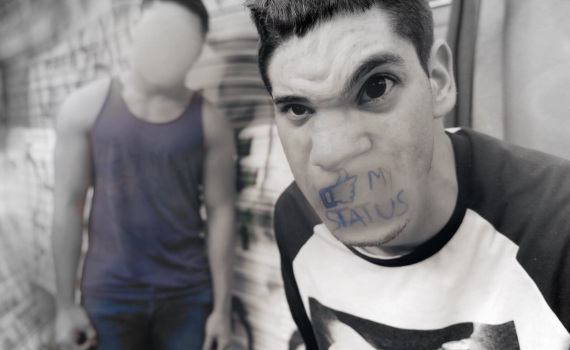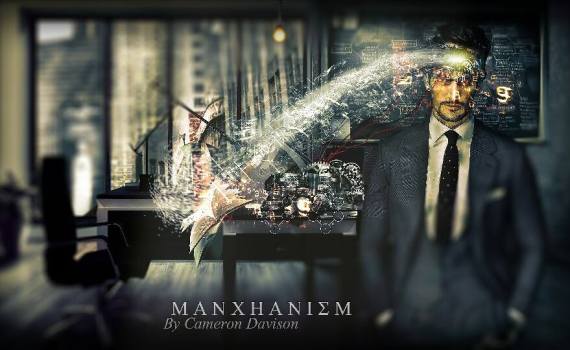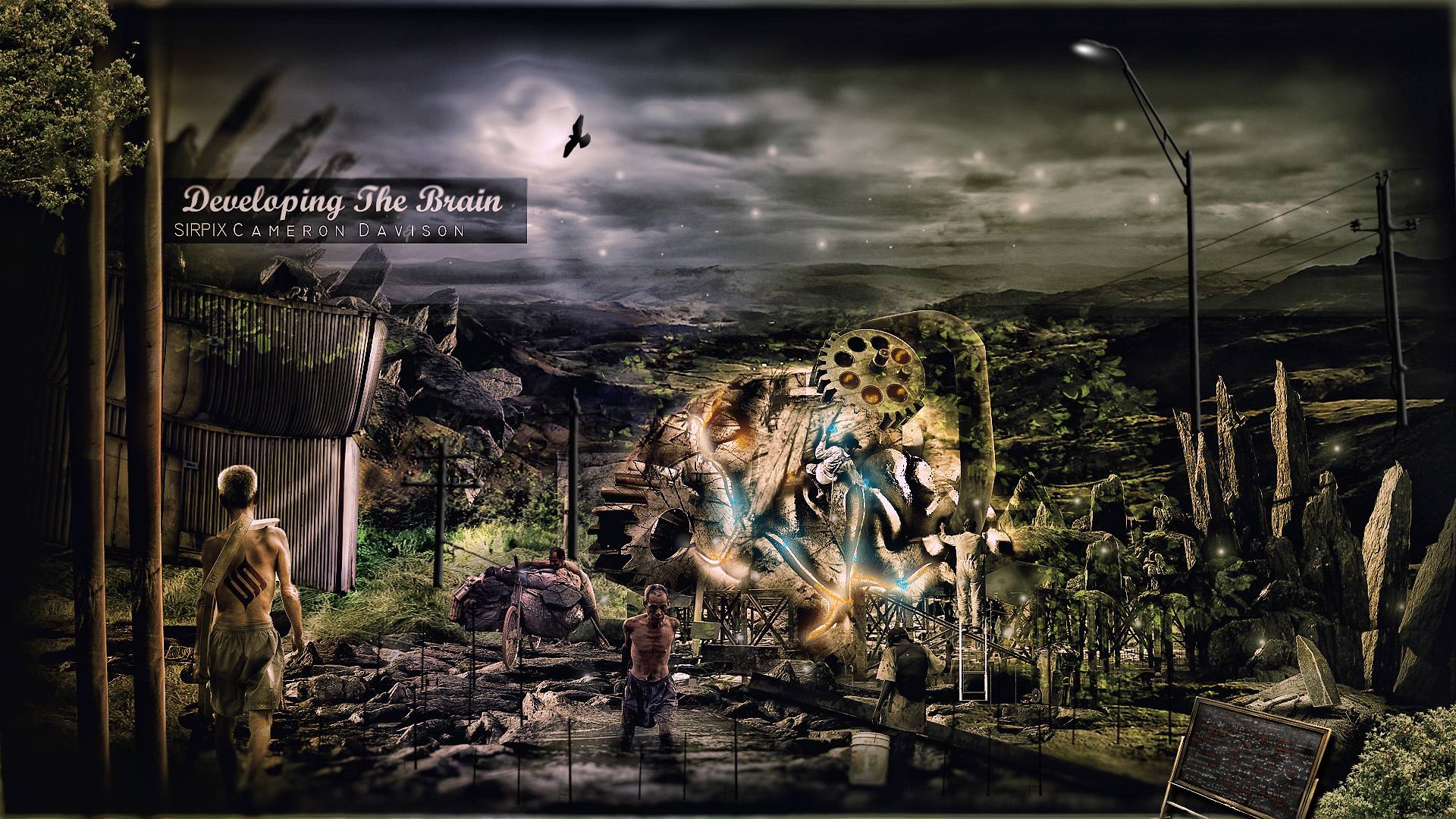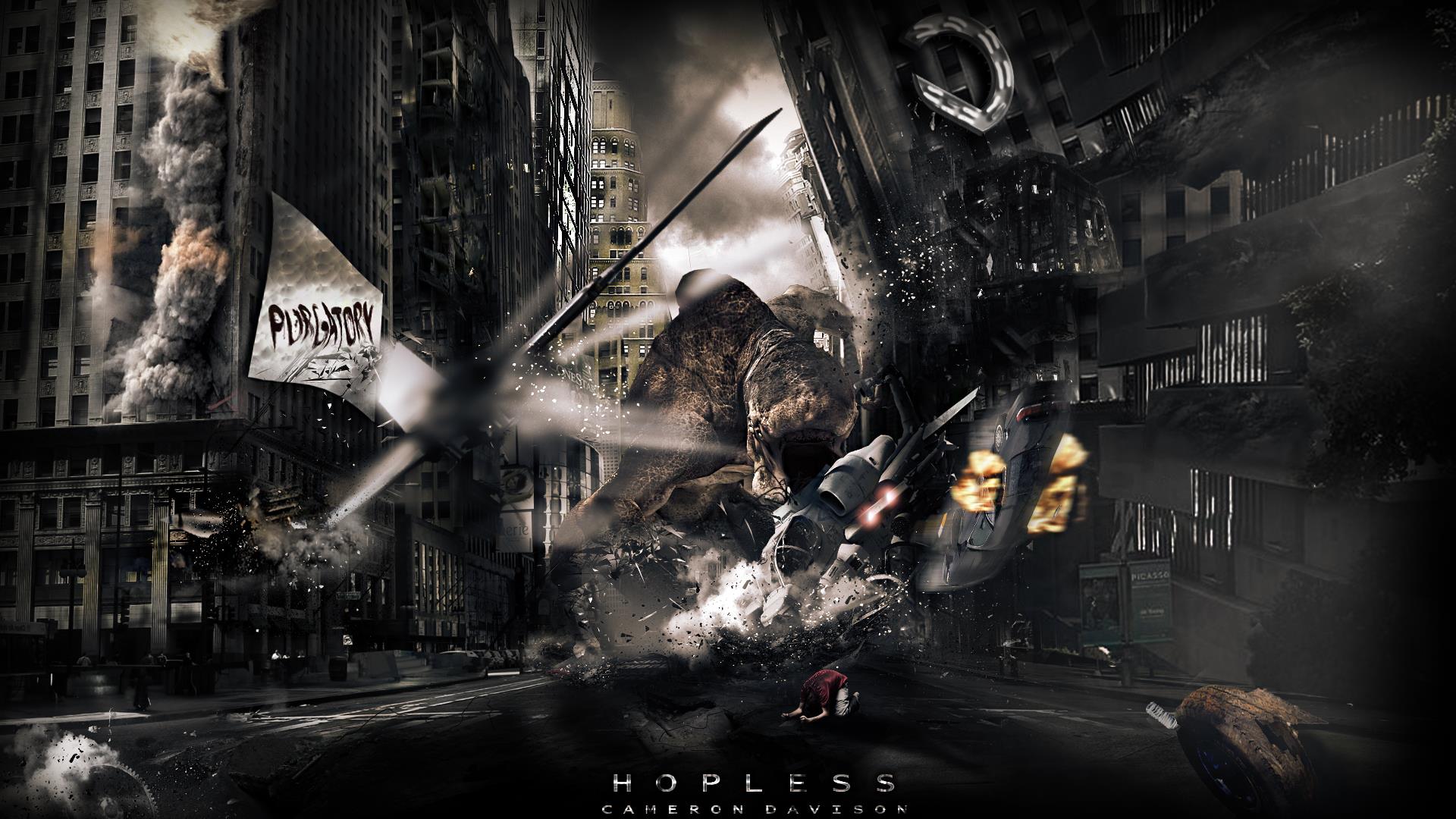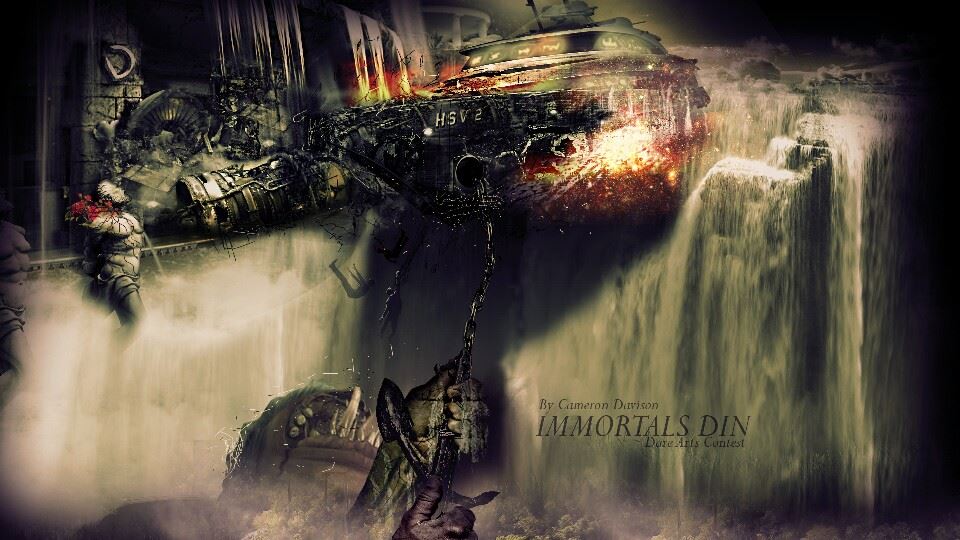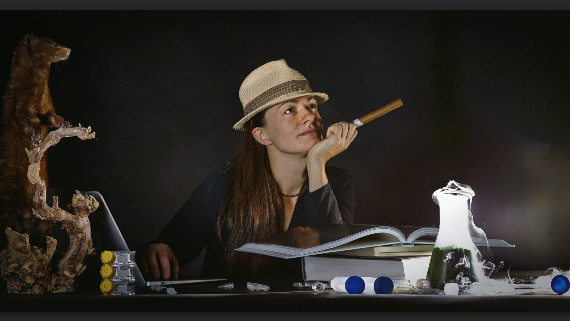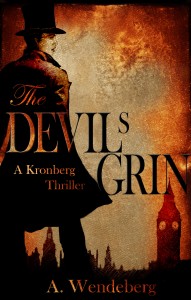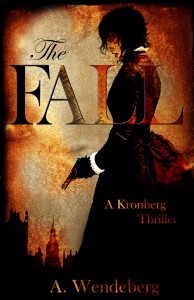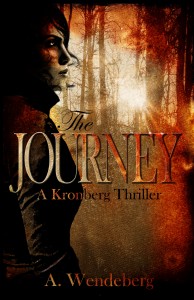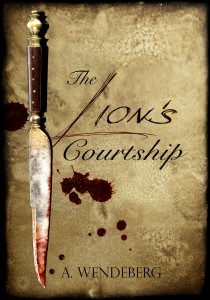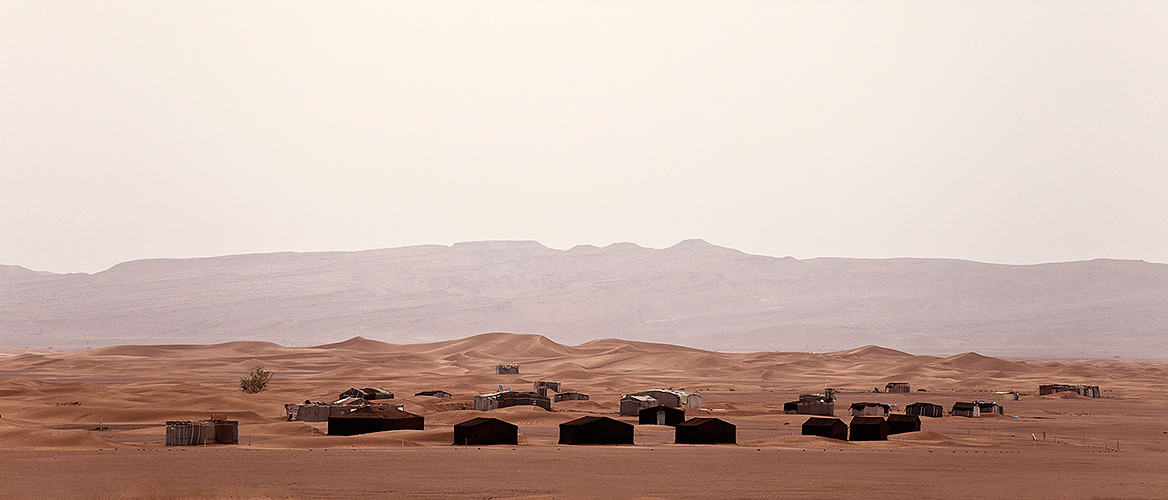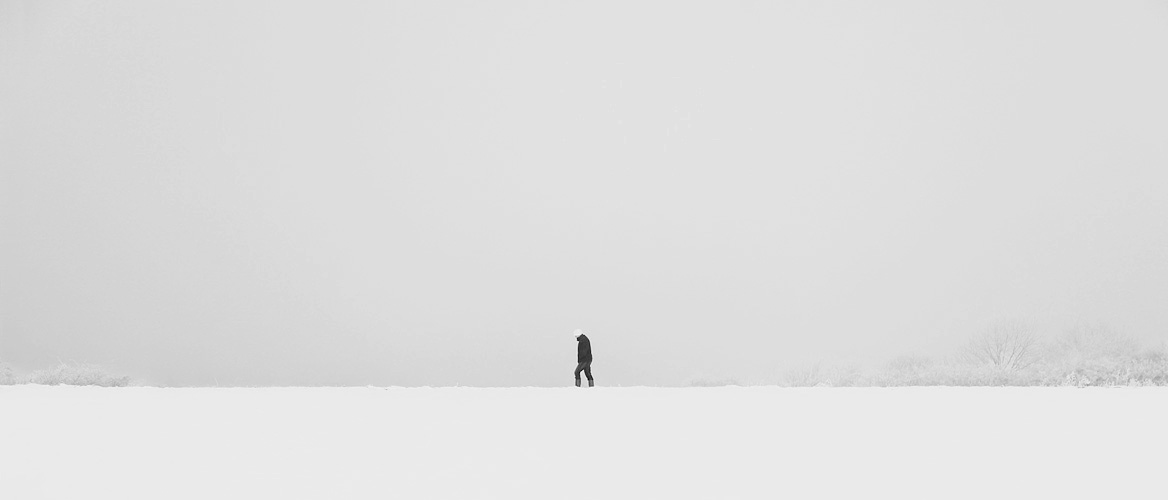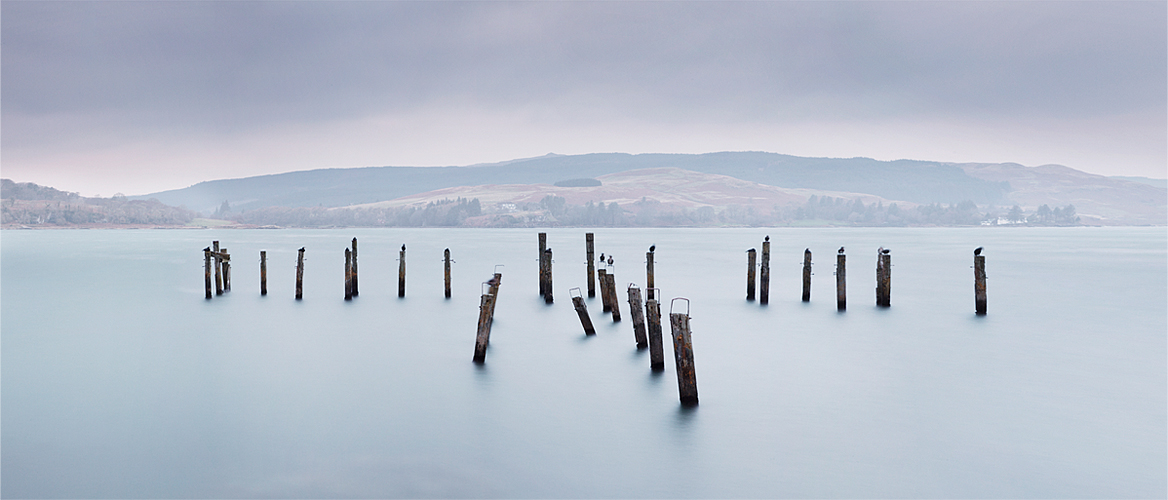He’s a lead vocalist, a guy responsible for incredibly powerful lyrics, enthralling sounds and who captivates any audience lucky enough to be in front of him…….and he’s just released a new album.
How could I resist the chance to gain some insight into how he’d managed to put me in a trance like state when I sat back and listed to The Vacationist, and in a way that generated so many new thoughts in my mind that after the album had finished I sat there in complete silence to contemplate them all? Well, I couldn’t, so here it is:
Q) So Cary before we get started, a little bit about yourself. How long have you been making music for, and what made you want to start in the first place?
A) Some of my earliest memories are related to music. I didn’t start playing guitar ’til I was about 13 and didn’t really open up my mouth to sing ’til I was in my early 20s. I remember being really young and my sister was playing U2 – War on her cassette deck in this early 80s Honda. I remember the song “Sunday Bloody Sunday” coming on and it did something to me. I didn’t know what it was at the time, but I realize now that it wasn’t just words that made me feel something; It was the combination of the way it was played, the cadence, the strain in his voice. It seemed so much more obvious to use more than just words to express something.
- PS don’t judge if you hate U2

Q) So with that said, who were originally your sources of inspiration and have your sources of inspiration changed somewhat as you’ve gone through life? Obviously this isn’t your first album as you’ve got quite a few great albums under your belt, but I’ve always wondered whether a musicians inspiration and motivation changes or almost evolves the more time they spend in the music world?
A) I don’t think that they change, I tend to just add to them as time passes. I still love stuff I loved through all my phases in life. Some of the bands I remember hitting me growing up would have been The Beatles, U2, a lot of different synth pop in the 80s, Depeche Mode, Pet Shop Boys, I went through a metal phase with Iron Maiden and early Metallica, followed by early hip-hop, Beasties, DMC, etc. I think The Cure may have been one of the biggest to influence me in my teenage years. There was a punk/hardcore phase, Bad Religion, Minor Threat, The Ramones and Gorilla Biscuits come to mind. A lot of folky and funky stuff, David Wilcox was huge for me, I really dug early Dave Matthews.
More modern bands I’ve gotten into the last few years I think would be AWOLNATION (actually grew up with Aaron), Passion Pitt, Muse. I don’t have any exclusivity when it comes to music, I think I literally like almost anything. I don’t listen to a ton of country, but still have a few songs here and there that I dig. I also went through classical stage in my teenage years that went on for a long time.
I think what fascinates me as a human and as an artist finds it’s way into my music. It’s funny though, I think in the last few years it’s been things outside of music that have influenced a lot of my recent writing. I can easily waste a day binging on Cosmos (old or new series), getting lost in anything Michio Kaku writes, reading about Einstein or Tesla, or waste a few hours on Jason Silva videos.
What fascinates me as a human and as an artist finds it's way into my music.
Q) So one could say that you certainly like to indulge in the occasional spot of philosophical or intellectual reading or viewing of material? Would you say that your low latent inhibition plays a part in your embracing such a diverse selection of thought provoking material and also plays a part in your being so receptive to so many different things?
A) I think it must. It’s always hard to credit LLI with the things I do or think though because it’s the only way I’ve ever been/thought. I’m constantly considering the possibilities, always sorting out ideas and filing them in certain parts of my mind ready to reference and associate with other pieces of information. It’s weird to think, and maybe this is an LLI thing, but realizing that your brain is a biological super computer is a powerful thing. When I was younger I hadn’t really spent a lot of time analyzing myself. I think with age though, you gain a little wisdom and hopefully use that to stand back and observe yourself as objectively as possible. Meditation I think is a very powerful thing. Quietening your mind and watching it, it’s downright entertaining at times. I think a lot of LLI people I’ve interacted with would relate.
Ithink with age you gain a little wisdom and hopefully use that to stand back and observe yourself as objectively as possible.
Q) Do you feel as though it’s important for a musician to have as diverse a taste or appreciation of music as possible, as it must help to take in and experience as many forms of musical stimuli as possible when it comes to having to then figure out what you’d like to hear or produce yourself? It almost seems like watching someone make a variety of alcoholic cocktails, and then you stepping to one side and making your own based on different combinations you saw them use.
A) I think diversity helps, but it’s probably different for everyone. It seems like anytime I read about successful artists, they’re typically huge music fans with a lot of diversity in their taste. I find a lot of the ideas I come up with that I get the most excited about though come from being somewhere alone in silence where there isn’t any noise or distraction. I keep a notebook with me all the time and I’ve noticed that if I’ve spent a few days without a lot of interaction the pages have a way of filling themselves with ideas, though that has more to do with words and lyrics.
I think it must be an LLI thing, just being open to possibility in general, though it’s not exclusive to LLI.
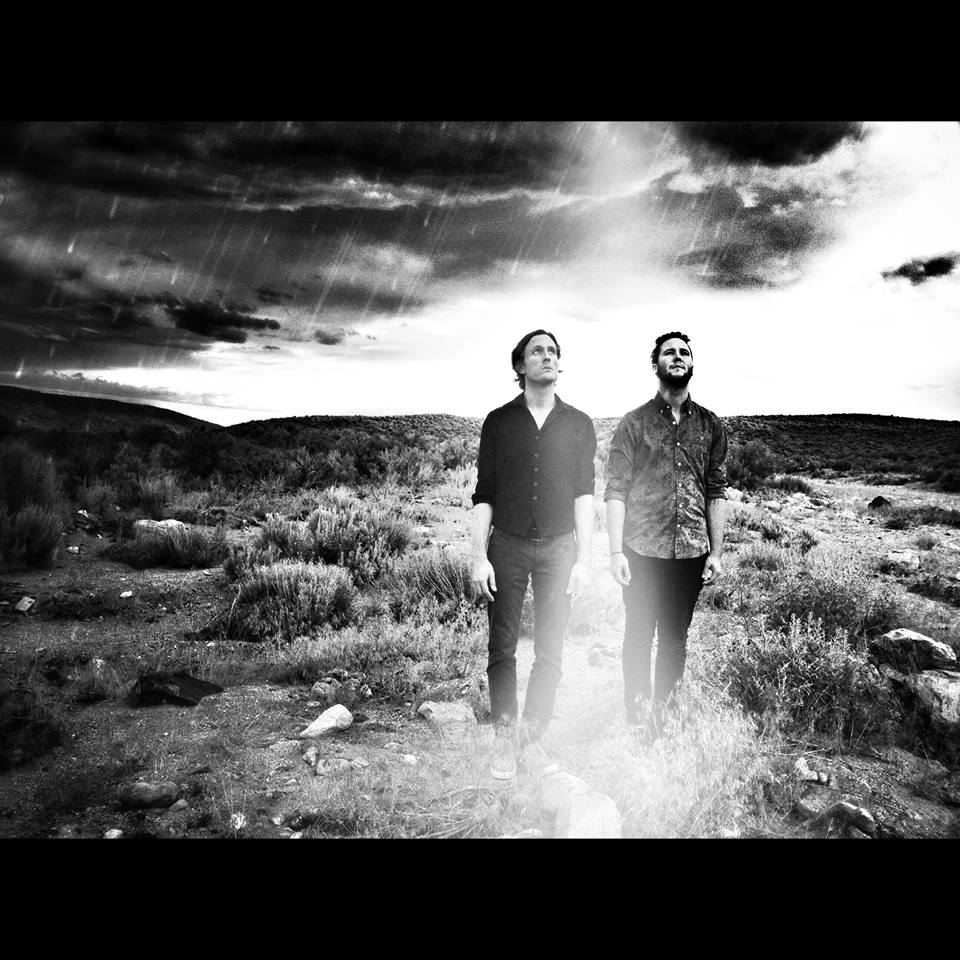
Q) Given that you obviously know about your having low latent inhibition, and with the fact that you’re able to step back at times and analyse things more so than when you were younger, do you notice any difference in terms of how you work when producing an album in comparison to the people you work with, or would you say that you have a natural affinity towards people with a similar mind to your own and that you naturally seek out people who fall into that category to work with?
A) Yeah, definitely. I think letting go of my brain and seeing what comes out is more of a typical practice than when I was young. When I’m writing, lyrics in particular, I like to be isolated and free to follow anything that crosses the monitor in my subconscious brain. I let a line that’s interesting fall on to the page. It doesn’t have to mean anything at the moment, it just needs to resonate in some way, whether it’s meter, hard consonants or just the way it flows. If there’s a good first line, it will typically dictate the next line and before I know it I’ve filled a page with verses/choruses/bridges and it feels complete.
The thing that interests me after a song is written, is going back and reading into the lyrics. If a little time has passed, I can be more objective and read into the lyrics as someone else, my present self as opposed to the person who wrote the song taking dictation from his subconscious. There have been a few mind blowing moments when I’ve analyzed lyrics that at the time of writing were practically nonsense, but after stepping back and revisiting them, they say so much about where I was when I wrote them. In some cases the lyrics are saying something I may have been uncomfortable saying in ‘real life’ shrouded in metaphor.
There have been a few mind blowing moments when I've analyzed lyrics that at the time of writing were practically nonsense, but after stepping back and revisiting them, they say so much about where i was when i wrote them.
As for the people I work with, I like diversity. I like people with different processes than me. My main collaborator on the record, Conor, also tends to isolate a lot, but as the record started to really develop, we found ourselves in the same room more and more bouncing ideas and recording them at the speed of thought. Then we’d separate, I’d go sing/write words and he’d tinker with sounds. It was really fun. I’d be in one room recording my guitar, not actual guitar playing but the sounds it makes when you toy with the electronics, plucking the strings beneath the saddle, knocking on the wood in different places, unplugging the cords and making electrical noises, putting magnets up to it to make it sound like some sort of space whale, or going out back and pounding on a dumpster.
I'd be in one room, recording my guitar, putting magnets up to it to make it sound like some sort of space whale.
Near the end we would have Sunnie, Kaleb, and Sam present to help solidify our ideas. They all bring a different, if not more pragmatic vibe to things. Sort of an “okay you weirdos, there’s some good songs and some really interesting songs, now let’s clean them up and make them make sense to the rest of the population.”
Q) It’s really fascinating for me as a non-musician to hear about the sheer depth involved in creating music and also writing the lyrics that go with it. I think that’s something that only musicians and lyricists grasp in it’s entirety as it’s a real shame that words can only portray so much of what goes into making a song or an album.
So compared to all of the other albums that you’ve created in the past, how would you say the preparation, thought and energy you put into The Vacationist differs from those, and for what reasons would you say things were different this time?
A) This album was different in a lot of ways. One of the things that stands out the most to me was that I was willing to let my subconscious really take the helm. I decided early on that I wouldn’t be reserving myself, that I wouldn’t withhold things I might normally. I don’t know if it was brave or careless. I thought less of how it would be received and allowed myself to be honest, direct, crass, abrasive even. I allowed my ‘inner nerd’ out of the cage. I’ve spent so much time since I was a kid looking at the stars, reading about what makes up the universe, longing to know the unknowable, it seemed that expressing a lot of that in an album was long overdue.
I've spent so much time since i was a kid looking at the stars, longing to know the unknowable, it seemed that expressing a lot of that in an album was long overdue
As for the musical side of things, I became less guarded as the album progressed. I started allowing Conor in on the production about halfway through, letting him call the shots and veto me when necessary. Then Sam, Kaleb, and Sunnie felt their way into the mix. It ended up being a Cary Judd record, but also ended up being something entirely different because of it, which is why I decided in conjunction with the members of the vacationist that it should be it’s own band going forward. I think it took a lot of letting go on my part. I found myself at a point where I had 4 other really talented people that I could trust to pick up the slack and make it something better than it otherwise would have been. It’s still my thoughts and my words and A LOT of my music, but the band brought perspective and shed light on these ideas I couldn’t have alone.
Q) That actually brings me on really nicely to my next question which is in relation to the people you worked with in creating this album. In terms of the people you worked with to create The Vacationist, had you worked with them all previously or was this very much a new adventure for you?
A) Conor (sound designer/guitar/synths) I had collaborated on a song called “Binary” with last winter. We ended up doing a different version for the record. Kaleb (drummer) was in another band that had spent some time this last summer recording at The Wormhole (mine/Conor’s studio) and just became a good friend. Sam (guitar) is in another band I really admire called A Sea of Glass. When it started looking like a band was forming, he was my ideal guitar player, and luckily for me was interested. Sunnie I’ve worked with on several non-musical but creative projects. She’s a professional photographer by day. She was in one day singing along and I made her jump in the vocal booth and sing into a vocoder. It wasn’t long before the idea of having someone who deals with visual imagery and lighting involved really sparked. She not only sings & plays some keys, but her main function when we’re playing live is the light design. She found a way to use a keyboard to trigger lights at different points in a performance so she’s literally playing the lights live.

Q) The Vacationist is very much a ‘larger than life’ type album, with reference to the cosmos, things outside of this planet and the universe as a whole. With the album having song titles such as “The Wormhole Express – a Trans-System Holiday”, “The Theory of Everything – The Delusion of Permanent habitation” and “Make Believe – Quantum Gatekeeper lyrics Syndrome” are those titles and references to such thought provoking areas relative to your own personal musings when you have a bit of quiet time to yourself, or would you say that they signify something else?
A) The initial titles are the names of the surface stories. What follows the “-“ is the analysis or the story behind the song my subconscious was trying to explain. This time around, rather than realizing much later what I was saying without knowing it, I’ve added that part of the process to the listener. Typically that’s just left for me. Those all absolutely came from the time spent alone. Allowing the ideas that were and are floating in the corners of my brain out to play is what sets this apart from anything else I’ve done. It’s the clearest rendering of the ideas, truths, spirituality, philosophy, and awe that live within their own universe system inside the biological grey matter that resides in my skull. Though some of the ideas may be totally crackpottish, they’re there and they wanted out.
Allowing the ideas that were and are floating in the corners of my brain out to play is what sets this apart from anything else I've done.
Q) There really seemed to be a lot of hype surrounding the build up to the release of The Vacationist, and a lot of excitement from people waiting to hear the full thing based on the tasters that you put out there on YouTube. When you declare that you’re working on a new album, does that put a certain amount of pressure on yourself to deliver something that not only you’re happy with, but that you know will have lots to offer all of the people whose ears you know it will grace?
A) At first, I do feel pressure. Somewhere along the way, especially this time around, it sinks in that I’m the artist. I’m not making art to suit anyone’s taste, I’m making it to first and foremost express myself, a sort of exercise of catharsis that I believe for whatever reason could be valuable to others. I think I realized this time more than ever, my job isn’t to make an album my existing fans will like, they already liked something they’ve heard that I’ve done in the past. I made another album because I had something more to say. The new album, just like any album between artist and fan, is another fork in the relationship. The existing fans will either relate or they won’t. They’ll listen for the first time and they’ll turn it up loud as the album progresses or they’ll turn it off and forget about it. It’s OK either way. All relationships either both grow and evolve or they fade into the background.
I knew halfway through that this album would challenge some fans and put others off. Now that it’s done, I think it’s worth giving a few listens, letting your imagination follow the stories and see if there isn’t something in there that relates to your own thoughts or sparks a new perspective.
I think in the past the most success, which comes through connecting with other humans on an emotional and intellectual level, happens when I don’t try to give people what they want, but rather make something they didn’t know they wanted ’til it existed.
Q) With what you’ve said about writing the lyrics and music to primarily express yourself, are there any underlying tones or messages within The Vacationist that you hope will resonate to people out there, or is it very much the type of album where you hope each person will be able to create their own meanings and relations based on your musical expression?
A) If there were an underlying tone or theme, I would point to the awe that comes with being human. You can stand anywhere and look up at a vast universe right in front of you. I don’t know how to quantify or value what being human is, but I know that in all that space, we are fairly rare. I don’t have any definitive knowledge of what the cosmos is, what God is, or what I am for that matter, but it’s pretty damn amazing in and of itself that we exist at all and I hope people feel the joy of that when they hear this record.
If there were an underlying tone or theme (to the album) I would point to the awe that comes with being human.
Q) Very eloquently spoken there (as I’d expect from a lyricist of your calibre haha). I know it might be like asking a parent to choose who their favorite child is, but during or after you’d created the Vacationist did you find that you had a particular song that you favor or prefer from the rest and if so, what are the reasons for that?
A) This record is about hope to find truth, the beauty that is already present in our world and universe, and loving what we are, even if we don’t know what that is.
At the present moment, and I’d have given you a different answer yesterday and would give you a different answer tomorrow, I’m really pleased with “The Theory of Everything”. The spitfire manifesto at the end of that song is pure acceptance and elation to me. I’m proud of my words there.
“this is the death of the sun a species singing as one this is “Imagine” at last as we baptize our past we are bathing in light we are the stars in the night this is a brand new start for the immortal at heart this is a place without sin sailing solar winds all are kings and queens this is the theory of everything”
Q) They are some incredibly deep and thought provoking lyrics Cary, and given people will be able to read your lyrics online and a few of them in the passage above, that leads me to ask whether people will be able to hear your lyrics in person and do therefore plan on touring now that The Vacationist is released, and gracing people with some live performances, and if so where are you likely to be headed?
A) We intend to start doing some shows in the Pacific Northwest and mountain region of the U.S. This winter. The cool thing about this group of people is that we’re all willing to go all-in with this project. We are currently looking for touring opportunities beyond that in 2015.
Q) What would you say the positives and negatives are of both performing in a studio and performing in front of a live audience? I don’t think I need to ask which you prefer given the stage presence you have when I’ve seen you performing in videos and the way in which you connect with the audience!
A) Positives to studio: You can polish and hone your performances. Negative to studio: No eye contact with your audience. No flinging sweat on the front row.
Positives to live: Eye contact, sweat, the catharsis of singing full volume into a hot mic.
Negatives of Live: This band has a very involved live setup with projection mapping and a lot of wires.
Q) If you could wind back time and do anything differently in relation to your career in music, or change something that you’ve done, what would that be?
A) I don’t know that I would change anything. I’ve had some crazy ups and downs, but who knows, if it had been different the ups may have been less and the downs may have been more. I’ve had to many priceless experiences to trade for “what ifs”.
Q) If you could sum up The Vacationist in one sentence, what would that sentence be?
A) We are here to make light.
Q) Finally, is there anything that you want to say to all of the people who have yet to listen to your album?
A) I think there is something on that record that anyone with human DNA will relate to if they’ll give it the time.
Cary, thank you very much for your time and to wrap up the Q&A, can you confirm where people should go to listen to the album now? How they can go about purchasing the album and any merchandise and also, when will it be available in iTunes?
http://thevacationist.bandcamp.com/releases
It will be on iTunes by the end of Nov – I’d also just like to say that this album was made possible by the support of the fans who contributed through the Kickstarter campaign, and I’d like to thank each and every one of them.
Interview by Dale Webb
